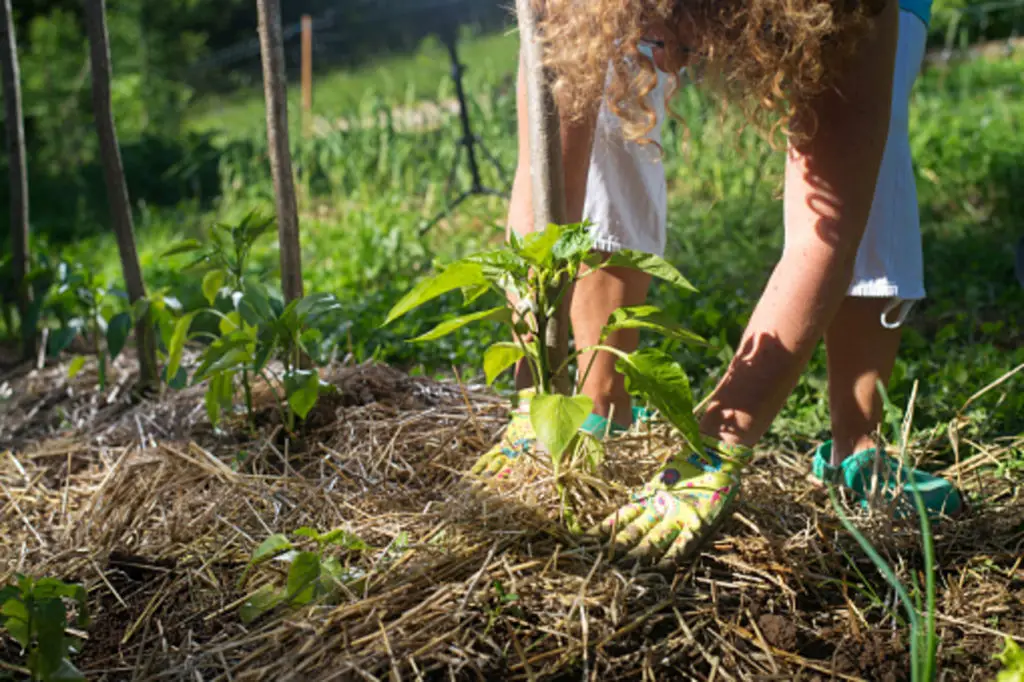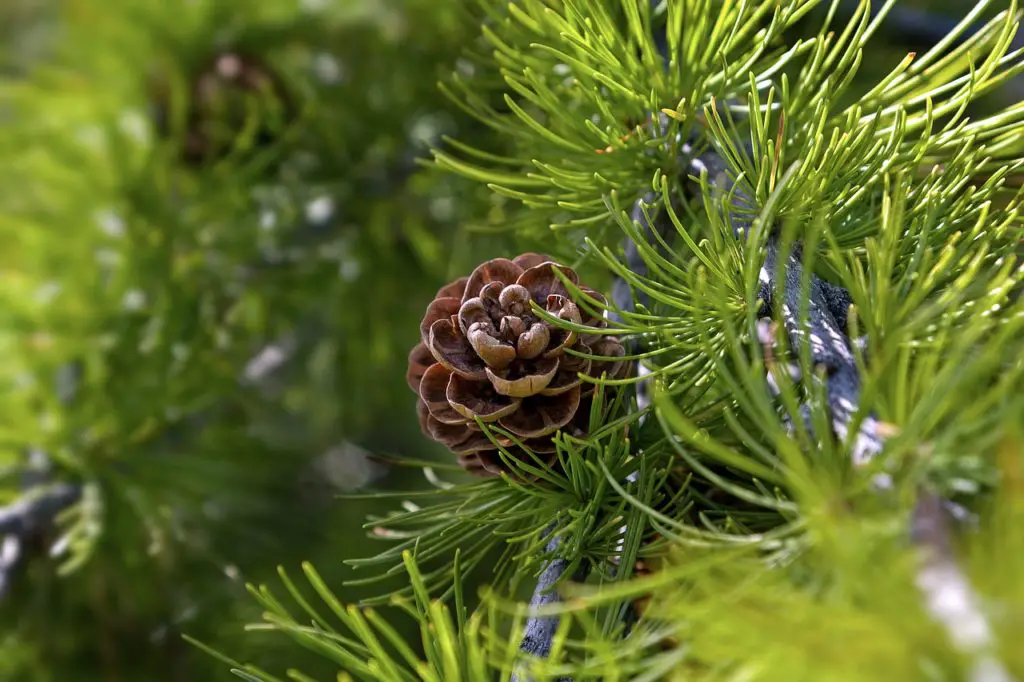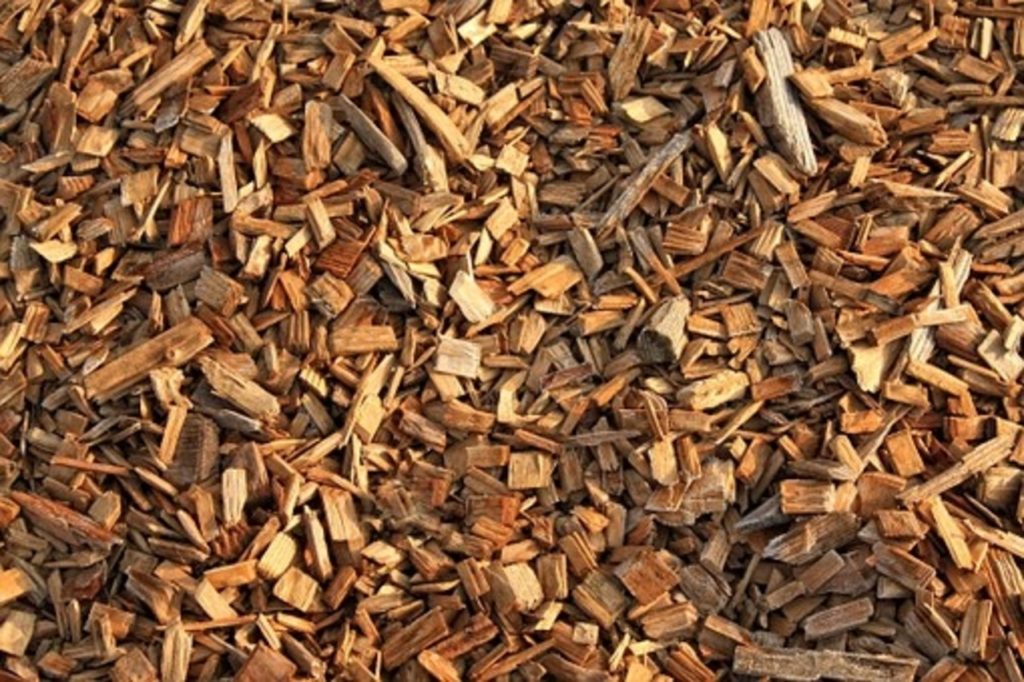Keeping up with the weeding and watering my vegetable garden before applying mulch was painful. I had to spend a lot. Although, all of that changed for the better after I started mulching.
So, what mulch is best for vegetable garden?
Straw mulch is the best mulch for vegetable gardens. Put mulch in your vegetable garden. Mulch your garden not only in summer when it’s too hot but also in spring when the temperature is low. The mulch shouldn’t be too deep to prevent water penetration or shallowness from allowing weed growth.
In this post, you will learn about the benefits of mulching vegetables. What kind of mulch to use and when to mulch. Plus, get lots of great tips for mulching a vegetable garden.
Also Check – Can You Till Mulch Into Soil?
What Mulch Is Best for Vegetable Garden?
The ideal mulch for a vegetable garden is straw. The reason is: it’s clean, light, and breaks down quickly. Hence providing your plants with more of what they need to thrive. Straw also appears to be the most readily available mulch.
Every region offers a variety of grains or legumes to manufacture straw. Wheat, barley, peas, and other grains are most prevalent.
Another thing about straw mulch is that it fits perfectly with all crops. It’s also usable in different seasons. All you need to know is the right amount to use. For example, you’ll need to use small layers in summer to reduce water loss. In spring, you’ll need more layers to raise the soil temperature.
What Should I Mulch My Vegetable Bed With?
It’s preferable to use organic mulch that allows water to infiltrate the soil freely. At the same time, as it degrades, it should add to the soil’s health.
Is inorganic mulch harmful? No! Black plastic, a common type of inorganic mulch, on the other hand, heats the soil and radiates heat at night. This form of mulch is ideal for use in the spring when the sun is scarce.
When Should I Mulch My Vegetable Garden?
When planting your vegetable in summer, you’ll need to mulch. In summer, soil loses a lot of water due to evaporation. This would, in turn, make your vegetables dry up.
You need to mulch your garden in spring. Why? The climate in spring is favorable to all plant growth, including weeds. Mulching prevents weed germination by cutting off the supply of sunlight.
Should I Put Mulch in My Vegetable Garden?
Yes! Spreading a thick layer of mulch over the soil is one of the finest strategies to keep weeds at bay in the garden.
Mulch has a lot of benefits, one of which is its capacity to retain moisture. Soil loses moisture significantly faster in the dry summer heat than in the cool, wet seasons. Water loss necessitates regular irrigation of your food garden. Mulching is the most cost-effective way to handle this problem.
Mulch also protects the soil from the sun’s UV rays, preventing the spread of weeds that requires sunshine.
Finally, natural mulch contributes nutritional content to the soil as it decomposes.
How Do You Mulch a Vegetable Garden?
There is a ‘just right’ amount of mulch. If it’s too shallow, it won’t accomplish its job; if it’s too deep, water won’t reach the soil. As a general rule, add a 2-3″ deep layer for the most remarkable effects. Weeds grow in anything less than 2 inches. Mulching deeper than 3′′, on the other hand, may prevent water from reaching the soil.
Avoid placing mulch around the trunk or stems while mulching plants. Piling it at the base of plants can cause the stems to rot or impede the growth of the plants (especially seedlings). Keep it at least an inch away from the plant stems.
Organic mulch decomposes quickly, so keep that in mind. As a result, you need to re-mulch at least twice a year.
What Two Things Should You Do Before You Apply Mulch in Your Vegetable Garden?
Before mulching, you must first remove any grass, weeds, or dead plants from the bed.
After that, set up an irrigation system, such as a drip irrigation system.
Is Cedar Mulch OK for Vegetable Gardens?
Cedar mulch is not OK for your vegetable garden as it has numerous drawbacks. For starters, cedar emits a scent that repels insect pollinators. Due to a lack of insect pollination, crop yields are minimal, as just a few can fertilize. The majority of people also dislike the stench. It’s probably best if we keep away from this one.
Second, cedar has a tremendous water-holding capacity. If used in moist places, cedar mulch can generate a waterlog, which causes the roots to rot. As a result, you should avoid using this type of mulch or use a skinny layer of mulch instead.
Is Straw a Good Mulch for Vegetable Garden?
Straw is one of the most effective mulches for vegetable gardens. The stems of grains are commonly used to make straw mulch. The straw is simple to use and light. It also breaks down quickly, providing your plants with more of what they require to thrive.
Straw is mostly carbon, which is a disadvantage. High-carbon plant matter needs nitrogen for decomposition. Plants need nitrogen for growth as well. If your soil already has a nitrogen deficiency, the straw depletes it more. Using a nitrogen supplement would be the answer.
Before using straw as mulch, double-check that it’s free of seeds. This prevents undesired weed growth in your garden from these seeds.
Are Wood Chips Mulch Good for My Vegetable Gardens?
Research shows that although wood chips are among the best mulches for trees and shrubs, you shouldn’t use them in vegetable gardens. The main reason for avoiding utilizing wood chips is because they bind nitrogen. This leads to the deprivation of plants with shallow roots of this essential nutrient.
You can still use it if it’s the only mulch you have. However, there are some exceptions. Before mulching, you need to apply nitrogen-rich fertilizer.
Vegetables mature faster compared to the rate of wood chip decomposition. Hence, you’ll need extra labor to remove the undecomposed weed chips from the garden.
Is Sugar Cane Mulch Good for Veggie Gardens?
Yes, sugar cane mulch is good for your garden. It’s less expensive, easier to handle, and more readily available than other mulches.
This kind of mulch decomposes quickly and adds organic materials to the soil as it does so. Top it up frequently due to its rapid breakdown rate.
FAQ
What Is a Good Mulch for Tomatoes?
A good mulch for tomatoes is straw. It breaks down easily and is equally light. Straw improves the soil’s structure — thereby boosting growth. Consequently, the harvest increases.
Keep off hay as a mulch. Here’s why. Weed seeds hide in it. With time, therefore, they’ll spread like wildfire in the garden and mess with your plants.
What Is the Best Mulch for Peppers?
Peppers benefit from organic mulch, ideally straw. Organic mulches degrade and provide nutrients to the soil and earthworms beneath them. This promotes nutrient content and aeration of the soil.
Early on, use black plastic mulch to help warm the soil. You can remove it once the soil has warmed enough and replace it with organic mulch.
Is Black Mulch Safe for Vegetable Gardens?
Black mulch is harmless to the vegetable plant. Because carbon used to make the dye is natural, non-toxic, and safe for handling. The main reason for dying the mulch is mostly for aesthetic purposes.
What Is the Best Mulch for Cucumbers?
Black plastic mulch is the finest for cucumbers in the spring to keep the soil moist. It’s important to remember that cucumber plants need a lot of water. The plants cease producing fruit if the soil becomes too hot or dry. This inorganic mulch also helps warm the soil, vital for rapid fruiting.
During the summer, though, you should switch to organic mulch. Organic mulch shields the cucumber from the sun. It also allows more water to enter the soil structure.
Should I Put Mulch in My Raised Vegetable Garden Bed?
Yes, you must put at least 2″ of mulch in your raised vegetable garden. It keeps weeds away. Weed seeds blown to your raised garden by the wind don’t germinate owing to a lack of soil. Also, due to a lack of sunlight, weed seeds already in the soil cannot germinate.
Conclusion
Mulching a vegetable garden is the most efficient approach to saving time and energy. While still improving the vegetable produce at the same time.
Remember that mulch causes your vegetables’ shoots to decay if it comes into touch with them. Keep the mulch 2” away from the shoot as a general rule.
Mulch should also be thick enough to inhibit weed growth. Conversely, the mulch should be thin enough to allow water to pass through.
In the winter, use plastic mulch to keep the soil warm. When the hot seasons arrive, you’ll need to replace it with organic mulch.
Straw is the most used material in vegetable gardens since it decomposes quickly.


